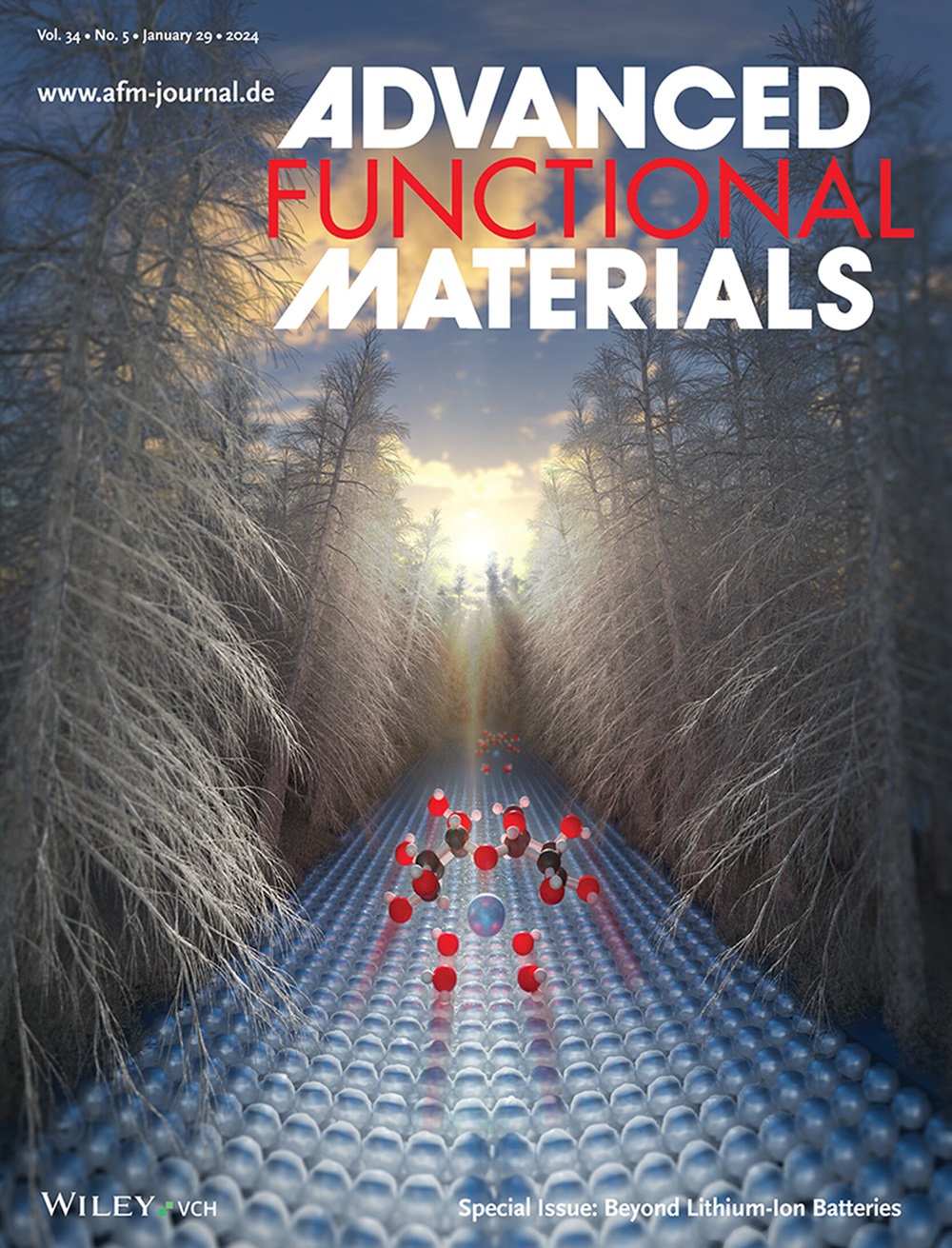利用π共轭肉桂烯单元的仿生自我强化可回收多功能可持续材料
IF 19
1区 材料科学
Q1 CHEMISTRY, MULTIDISCIPLINARY
引用次数: 0
摘要
在塑料引起的全球资源和环境问题日益严重的背景下,生物质材料提供了一种有前景的可持续发展战略。然而,现有材料在暴露于环境因素时会老化,其不可回收性加剧了生态挑战。受植物自我修复机制的启发,通过“一石多鸟”的策略,提出了一种从木质纤维素生物质中提取的自我强化、可回收、多功能、可持续的聚酯材料。与传统材料在实际环境条件下逐渐老化不同,通过模拟植物细胞壁结构,该材料包含芳香π共轭肉桂烯单元,在紫外线或湿热条件下进行[2+2]-环加成反应,显著提高阻隔效率(O2渗透率0.026,+115%),机械性能(杨氏模量319.3 MPa, +21%)和抗紫外线性(99.6%,+2%)。此外,它具有优异的耐溶剂性,荧光防伪能力和可回收性,使其具有完全可持续的生命周期。这项工作为开发支持可持续发展的下一代生物质塑料提供了可行的策略。本文章由计算机程序翻译,如有差异,请以英文原文为准。
A Biomimetic Self‐Reinforcing Recyclable Multifunctional Sustainable Material Harnessing π‐Conjugated Cinnamene Units
Biomass materials offer a promising sustainable development strategy amid escalating global resource and environmental issues caused by plastics. However, incumbent materials suffer from aging when exposed to environmental factors, and their non‐recyclability exacerbates ecological challenges. Inspired by plant self‐repair mechanisms, a self‐reinforcing, recyclable, multifunctional, sustainable polyester material derived from lignocellulosic biomass through a “one stone for multiple birds” strategy is presented. Unlike conventional materials that progressively age under practical environmental conditions, by mimicking plant cell wall structures, this material incorporates an aromatic π‐conjugated cinnamene unit that undergoes [2+2]‐cycloaddition reactions under UV or hygrothermal conditions, significantly enhancing barrier efficiency (O2 permeability 0.026 barrer, +115%), mechanical properties (Young's modulus 319.3 MPa, +21%), and UV resistance (99.6%, +2%). Additionally, it demonstrates superior solvent resistance, fluorescent anti‐counterfeiting capabilities, and recyclability, enabling a fully sustainable life cycle. This work provides a viable strategy for developing next‐generation biomass plastics that support sustainable development.
求助全文
通过发布文献求助,成功后即可免费获取论文全文。
去求助
来源期刊

Advanced Functional Materials
工程技术-材料科学:综合
CiteScore
29.50
自引率
4.20%
发文量
2086
审稿时长
2.1 months
期刊介绍:
Firmly established as a top-tier materials science journal, Advanced Functional Materials reports breakthrough research in all aspects of materials science, including nanotechnology, chemistry, physics, and biology every week.
Advanced Functional Materials is known for its rapid and fair peer review, quality content, and high impact, making it the first choice of the international materials science community.
 求助内容:
求助内容: 应助结果提醒方式:
应助结果提醒方式:


